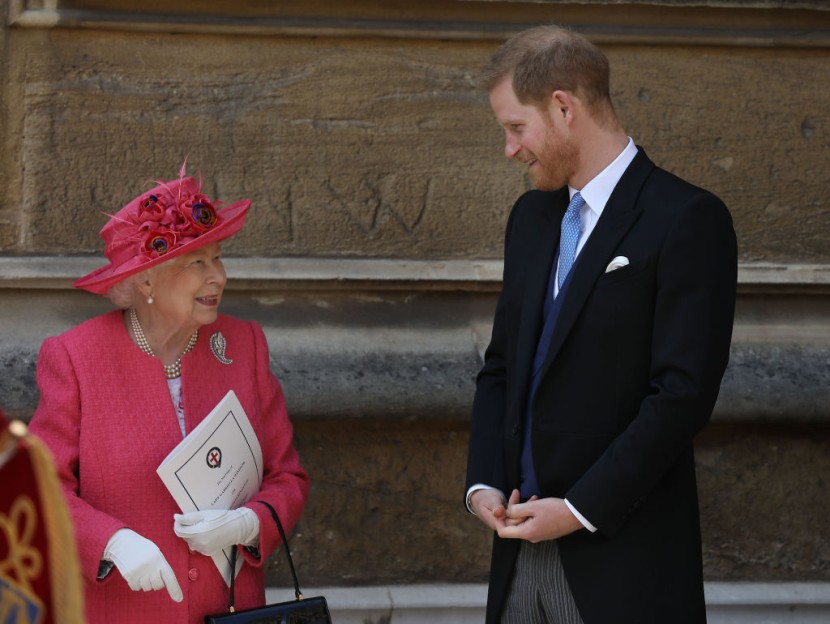
An unusual three-way briefing war erupted between the Sussexes, the Palace, and the BBC when Prince Harry threatened the BBC with legal action after it claimed that he and Meghan Markle did not seek Queen Elizabeth II for permission to name their newborn Lilibet. The Queen was never asked her opinion on the couple's decision to name their new baby after her childhood nickname, according to senior Buckingham Palace sources who spoke to BBC royal correspondent Jonny Dymond.
Within 90 minutes of the BBC's report being released, Prince Harry retaliated with a statement from his and Meghan's close friend Omid Scobie, insisting that the Queen was the first person the Duke contacted after his daughter was born. Scobie, who penned the sensational Finding Freedom biography of the couple, also claimed that the Sussexes would not have chosen the name Lilibet unless the Queen authorized it.
Prince Harry threatens BBC over Lilibet name claims
Prince Harry, who revealed he and wife Meghan were expecting a daughter during an interview with Oprah in March, went even further. He threatened the BBC with legal action through the law firm Schillings only hours after he denied BBC's report. The legal move was followed by a carefully written statement that left more questions than answers about whether the Queen granted permission or whether the couple just notified her of their plans in a fait accompli.
"The Duke communicated with his family in advance of the announcement his grandmother was the first family member he called. They would not have used the name if she had not been supportive. " the statement said, insisting that the BBC claim was completely false, Daily Mail reported. He expressed his desire to name their baby Lilibet after her throughout that conversation.
The BBC then corrected their report, though the story still claims the Queen was not asked about the baby's name. Dymond's tweets mentioning a source at Buckingham Palace are still up. According to the BBC report on the Palace's position and Prince Harry's furious reaction, both parties think they are speaking the truth about the situation. Prince Harry and Meghan might have informed the Queen of Lilibet's name before accepting Her Majesty's non-denial as approval.
Read Also : Aussie Man Claiming Prince Charles' Secret Son Posts New Proof; Says He Was Made to Look Less Royal
Duke of Sussex's continues to battle against BBC
The Queen appears to have been presented with the couple's decision and requested to rubber-stamp it rather than provide consent, per the Palace briefings.
The explosive fight is the latest episode in Harry's continuing battle with the BBC, which began when he attacked the network in the aftermath of the investigation into Martin Bashir's interview with his mother, Princess Diana. Prince Harry slammed the BBC Panorama interview from 1995, claiming that his mother "lost her life" as a result of it.
Despite Harry's emphatic disapproval of the BBC report about the child's name, when reached by MailOnline, Buckingham Palace declined to comment on whether the story was accurate. The person who leaked information to the BBC from the Palace is unclear, although it is assumed to be a high-ranking person. It is also unknown whether the Queen was aware of the remark. But it is unusual for the Queen to refuse to sign off on remarks from senior officials, even if the briefings are anonymous.
The Sun's sources said that the Palace was "irritated" by assertions made by Prince Harry and Meghan Markle's staff that they had informed the 95-year-old Queen of the tribute in advance. "A phone contact was made before the official announcement - but the question was never asked," the insider said, adding that Harry "never asked" the Queen for approval. The source further characterized the information as simply being given to the Queen. The Sussexes continue to claim the Queen was "supportive" of the plan and would have expressed her displeasure if she was not.
Related Article: Prince Harry, Meghan Markle Welcome Second Child: Here's Why Baby Girl Is Named Lilibet Diana
@YouTube








